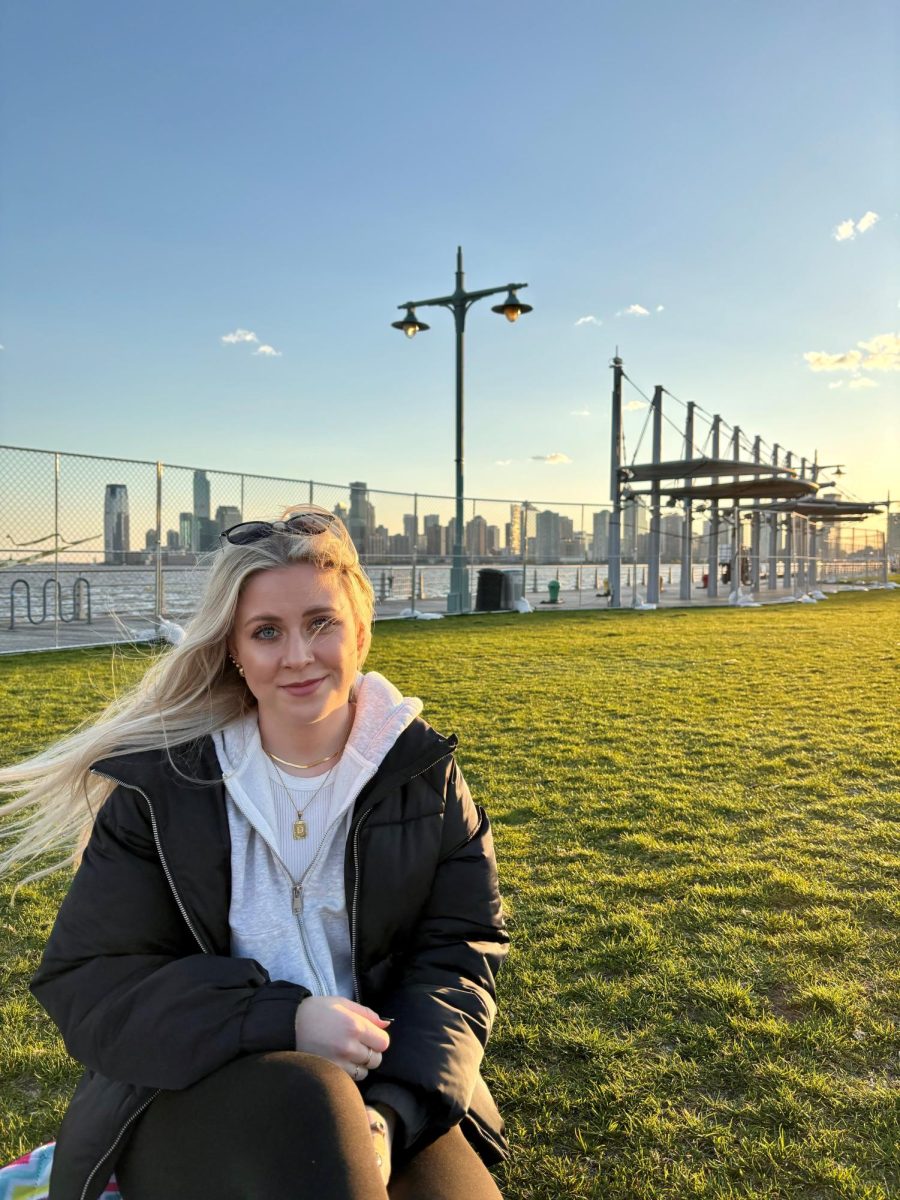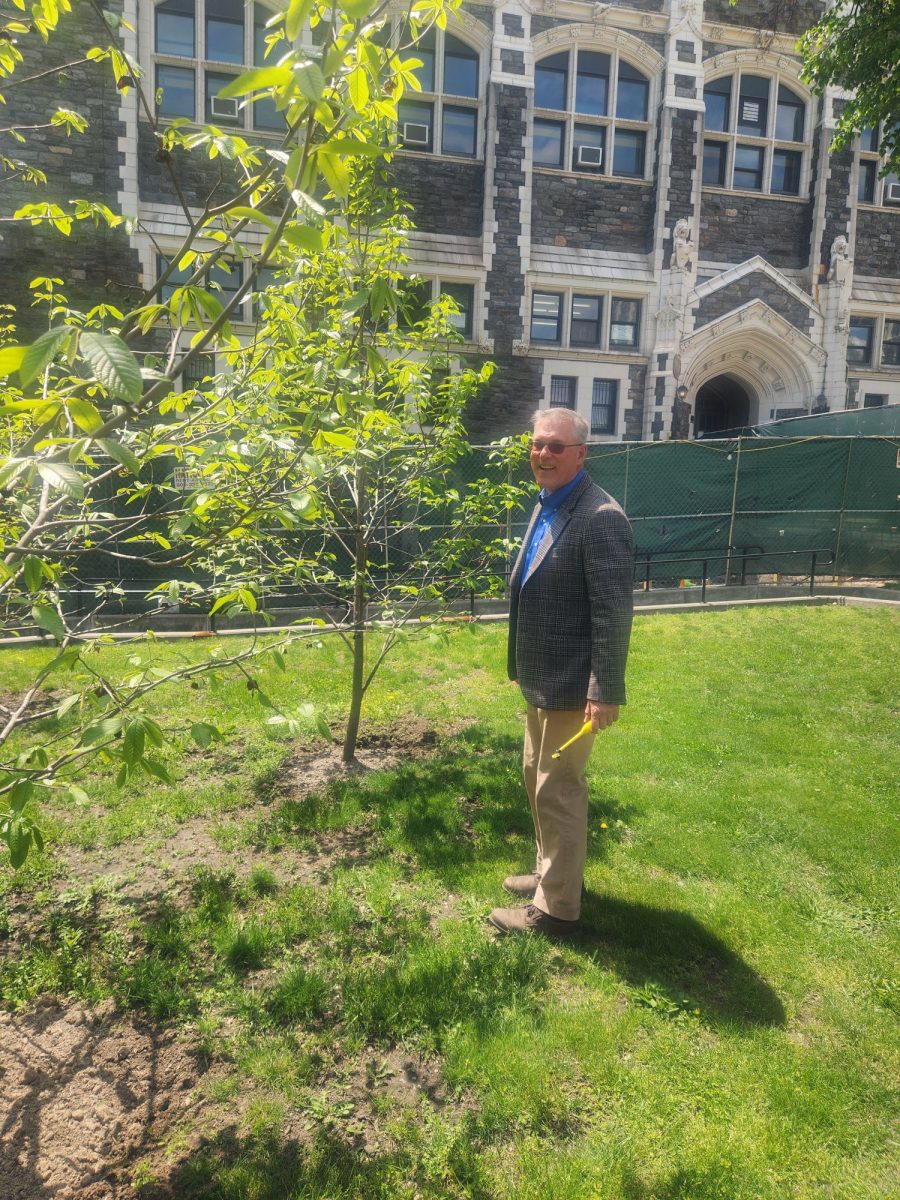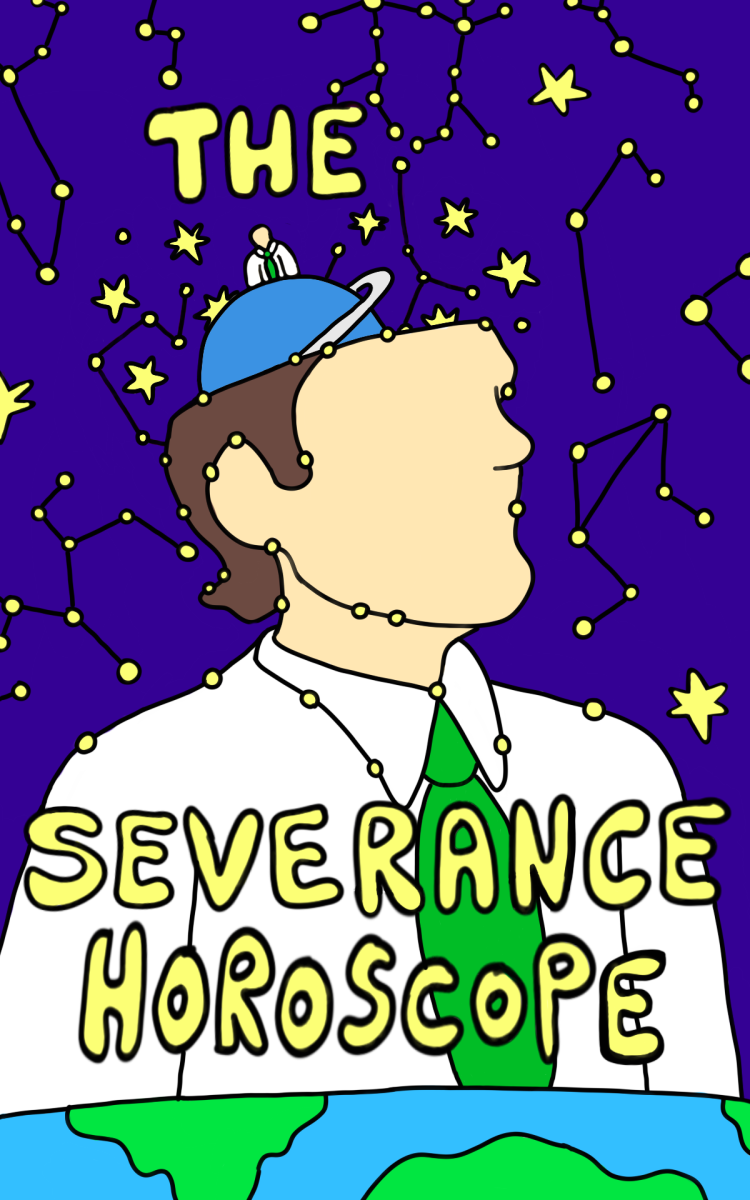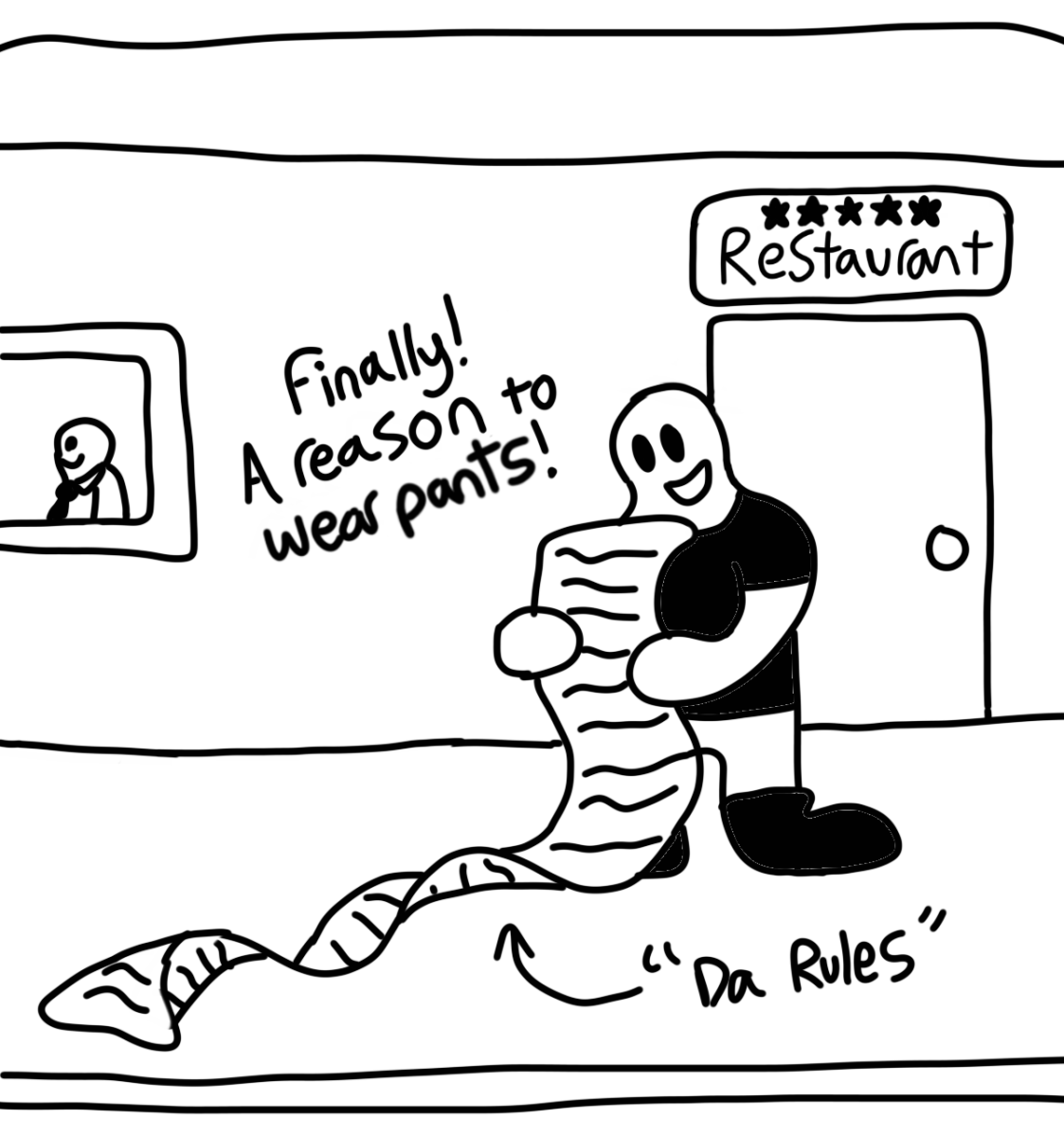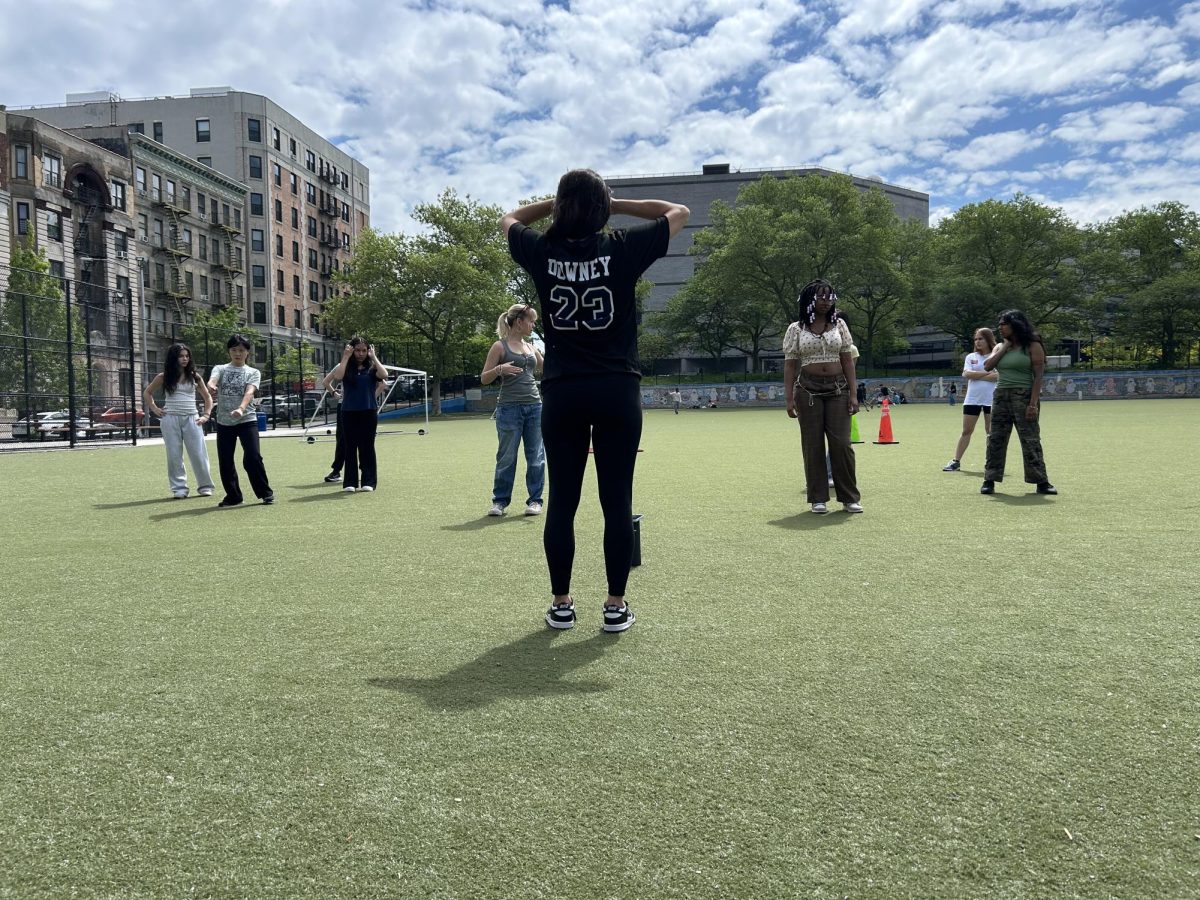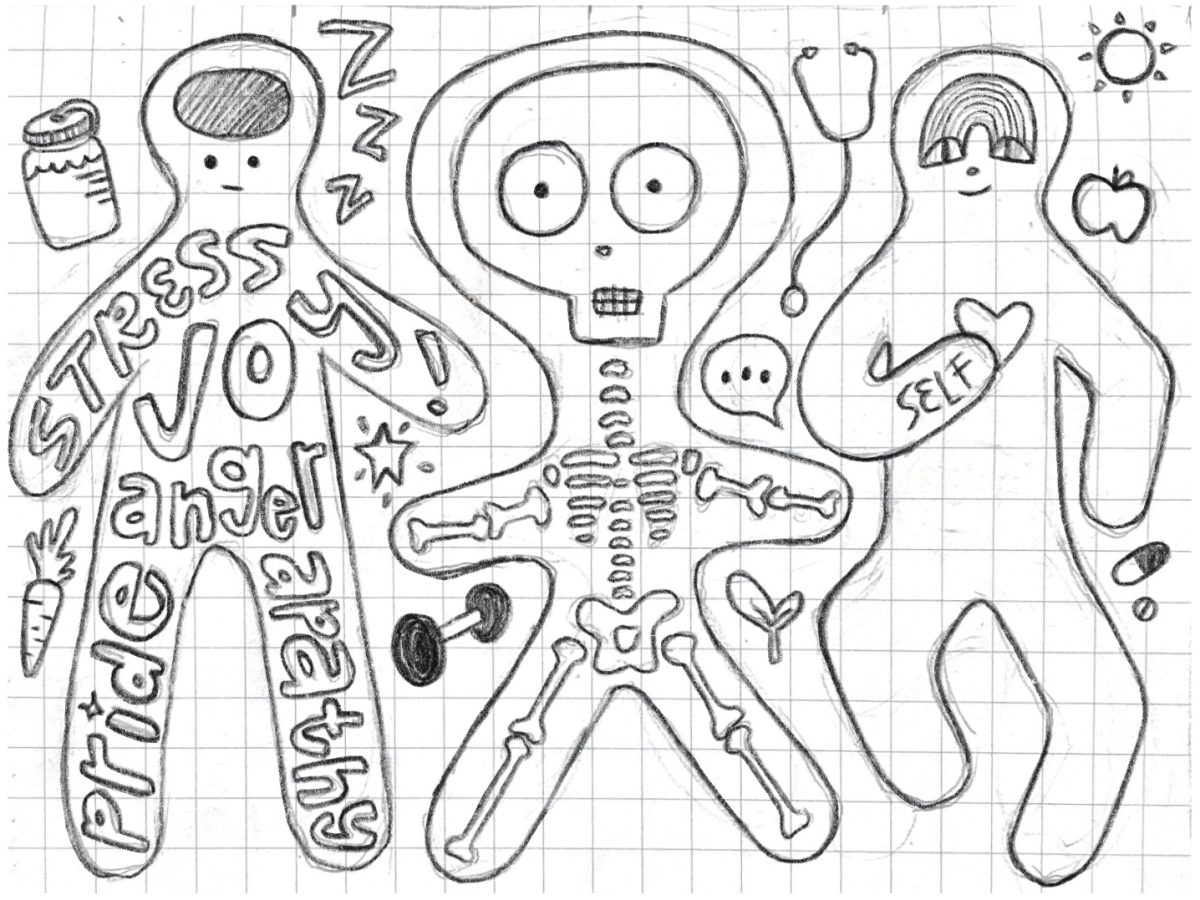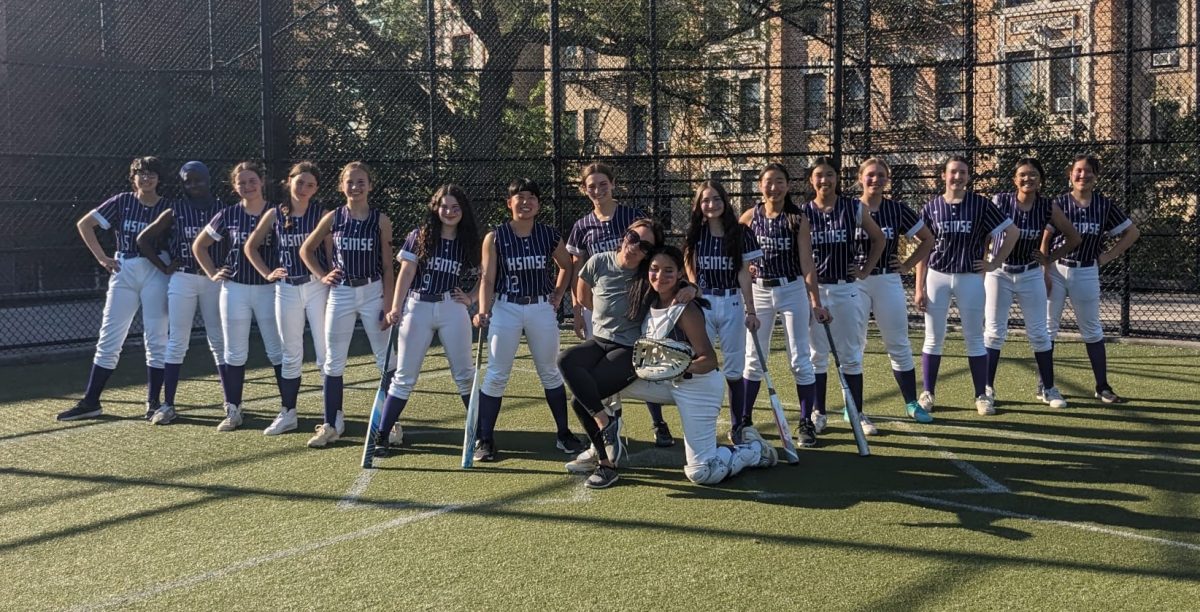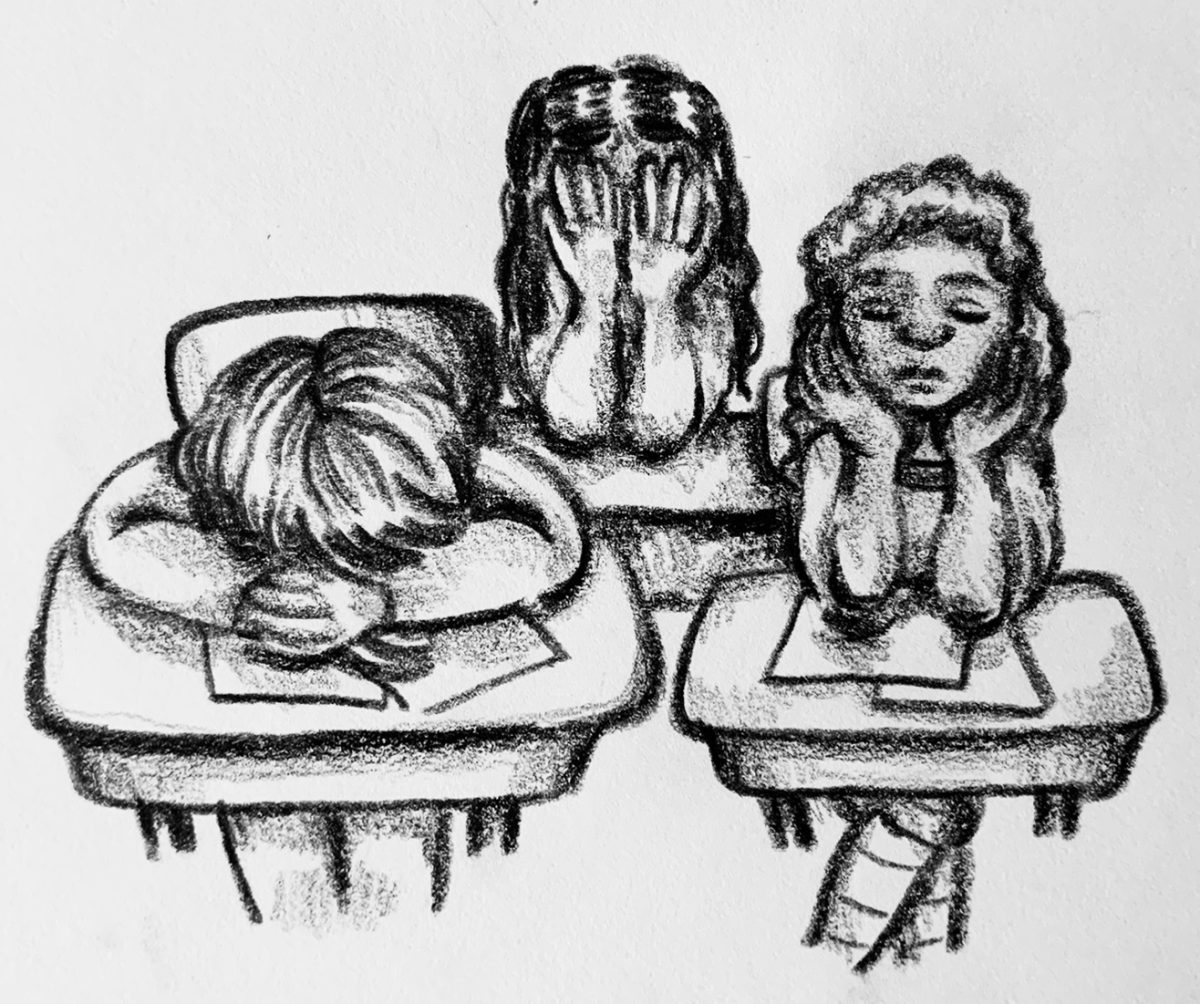We’re living through another epidemic. And no, this time it’s not a virus — it’s about sleep, or the lack of it. You see the signs everywhere. Someone nodding off during class, someone passed out on the stairwell beanbag and another, head down during lunch, choosing sleep over food. Answers to the recurring question of “how much sleep did you get last night?” have become competitive. Less than 4 hours and still functioning? A force of nature to be celebrated. More than 7? A rare bird and source of envy. The average high schooler in the U.S. sleeps 6 to 7 hours each night, with 20% sleeping 5 hours or less according to a 2018 survey conducted by the CDC. And by senior year, only 15% reach the minimum 8 hours of sleep recommended by the National Sleep Foundation. The sleep deprivation crisis has only worsened in recent years. Analysis of data from the CDC’s National Youth Risk Behavior survey demonstrates that while in 2007, 31% of high school students got more than 8 hours of sleep, by 2019, this had fallen to 21%.
HSMSE is a small specialized high school, where classes are high-level, and expectations are even higher. We are expected to balance the course load with sports, extracurriculars, test prep and tutoring. Many of us have long commutes, jobs and responsibilities at home. And as teenagers (and humans), we want to spend time with our friends, live a little, maybe even have some fun. But how does all of this cut into our sleep? To determine the extent of sleep deprivation at our school, we ran a student poll. According to the data we gathered, of the 60 respondents, only 25% get the recommended 8-9 hours of sleep. This is comparable to the nationwide data, but it’s clearly less than ideal.
At this point, “tired” has become the only acceptable answer to “how are you?” and it often seems inevitable that we should all wrestle to keep our eyes open during the week. We all know that sleep is important, we’ve heard it from our parents, teachers and doctors, but sleep still falls to the bottom of our list of priorities most nights. We must understand that skipping out on sleep is not like skipping breakfast. Sleep is not just “rest” for the brain and the body, it is vital time for brain development and construction. Teens are in an important phase of brain development, and most of this development occurs during sleep. Our frontal lobes, the part of the brain responsible for managing attention, forming personality, empathy, and reward seeking behavior, are being rewired, strengthened, and pruned. When you skimp on 2 hours of sleep, you are not missing out on rest, you are missing out on 2 hours of crucial brain development and construction.
The vital importance of this stage in cognitive development means that teens need more sleep than adults. While 7-9 hours is recommended for adults, 8-10 is optimal for teens. And it’s good to understand that 8 hours is only the minimum; it is adequate, but not ideal. When researchers gave teens the opportunity to sleep as long as they wanted, they slept 12 hours on average. After a few days, when they had made up their sleep debt, participants ages 10 to 18, slept over 9 hours on average. And while the amount of sleep one needs varies immensely from person to person, it’s more than fair to say that most, if not all, of us are lacking in sleep. But how do we fix this? For many teens, life just doesn’t leave much time for sleep. “As teenagers we are supposed to maintain a good sleep schedule while also maintaining a good social life, staying active, doing clubs and getting good grades,” wrote one HSMSE student. “On a day where I have a few homework assignments and a club, getting to the gym is difficult, let alone also being social. I find myself choosing what to prioritize in order to get enough sleep. But by that time I’ve spent too much time being anxious to even fall asleep on time anyway.”
So this introduces a dilemma. While it’s true that technology has worsened sleep for all of us, and that habits like scrolling social media or playing video games before bed are cutting into our sleep— take our phones away and many of us will still be sleep deprived. And there are other factors at play: data demonstrates that sexual and gender identity minorities and teens of color sleep less on average. A teen’s living situation can also negatively impact their sleep if they are living in a crowded apartment or a noisy neighborhood. 30% of HSMSE students ranked their “family/living situation” as a primary contributing factor in their lack of sleep.
Sleep has become a privilege, and the effects of sleep deprivation can be astronomical. Missing out on sleep will negatively impact your school performance. Obviously, if you’re sleeping during class, you aren’t learning, and if you’re tired, you’re not learning well. Of those that responded to the poll, 12% of MSE students say they fall asleep in class every day and another 30% say they fall asleep in class occasionally. For those that do manage to stay awake, but must force their eyes open, how can they listen to, let alone understand, the tenets of transcendentalism or trigonometry? Sleep deprivation is shown to lower grades, attendance and graduation rates. Keep forgetting things? When you’re sleep deprived, memories are not stored in long term memory; instead, you are more likely to only remember things in the short term. For the athletes out there, sleep is vital to injury recovery and strength building, and a lack of it will negatively impact performance on the court or field.
But most importantly, there is a clear connection between the sleep deprivation epidemic and the teen mental health crisis. As rates of anxiety and depression among teenagers continue to grow, it becomes increasingly necessary to consider the factors at play. At the peak of the pandemic, in early 2021, according to the CDC’s Morbidity and Mortality Weekly Report, 44.2% of high school students had persistent feelings of sadness and hopelessness (persistent meaning every day for more than 2 weeks), 20% seriously considered suicide, and 9% attempted suicide. At HSMSE, 15% of students would consider themselves to be depressed most of the time, and a startling 30% say they feel anxious most of the time.
It’s not hard to see how missing out on sleep could negatively impact mental health. We all know what it feels like to be tired. It can be harder to keep your emotions in check, you get annoyed more easily, frustrated at simple tasks, and you may even lash out at the people you love. Now imagine you’re sleep deprived every day. The amygdala, the brain’s emotional reactive center, is more active in a sleep deprived state, meaning when you’re tired, you will tend to perceive things in a negative light. Emotions like sadness or anger are more likely to surface. Meanwhile, the prefrontal cortex, responsible for executive function, perspective, judgment and emotional regulation is underactive. The brain’s system for clearing out waste and toxins that build up during the day is unable to function, further exacerbating negative emotions. This is why teens with less than 8 hours of sleep are more likely to report depression. Teens with 6-7 hours of sleep were 17% more likely to consider self-harm than those with 8 hours. And for teens with 5 hours? They were found to be 81% more likely to think about hurting themselves. More than 50% of HSMSE students stated that they believe a lack of sleep negatively affects their mental health. The importance of finding solutions to the sleep crisis is painfully obvious, so why does it seem like nothing is being done about it?
The CDC and the American Academy of Pediatrics have recommended in recent years that schools should start no earlier than 8:30 in order to better account for students’ natural circadian rhythms. Teenagers experience a circadian rhythm shift at the onset of puberty, meaning that melatonin, the hormone that facilitates sleep, is released later at night. This also means that teenagers will naturally sleep in later if they have the opportunity. But for many teens, early school start times can cut into this morning time for sleep. There is a mismatch between teens’ natural body clocks and the sleep schedule required of them by their school. In response, this year California recently passed a law that required high schools to start no earlier than 8:30. New York and New Jersey are currently considering similar bills. In many cases, later start times are associated with increased sleep, and with it, increased graduation rates and mental health benefits. Later start times seem to be the number one recommended solution for the sleep deprivation crisis, but for schools like HSMSE that already start at 8:30, and yet continue to face a lack of sleep, there must be other options out there.
Many teens who don’t get enough sleep during the week play catch-up over the weekend. But the concept of “rebound sleep”, or the idea that you can sleep less one night if you make it up the next night, is flawed. Imagine you are in sleep debt on a Friday night after a long week of 6 hour nights and you sleep for 10 hours Friday and Saturday night. In the short term you will sleep deeply and feel well rested, but this altered sleep schedule will confuse your brain and body. When Monday night comes along and you transition back to 6 hours, you will suffer from something known as “social jetlag” and be in a more sleep deprived state.
So what can we do? This sleep crisis can’t be unsolvable, but any solutions will need to be extensive and life changing. When asked to select which factors most limited their sleep, 80% of MSE students selected homework. The majority of us have, on average, 2 to 3 hours of homework per night, which might not seem so bad on its own, but add in other responsibilities, and it can become unmanageable. Students enjoy participating in extracurricular activities and sports, as they provide a much needed break from school, but often mean that students get home late. Waiting for them at home are hours of work.

As this MSE student put it, “School is my main stresser. I do partake in extracurriculars, but those I do for fun.” And this student: “extracurriculars are very important and I want to do them but they do lead to getting home late. Then I need to do my work and that takes hours.” How much of this homework is really necessary? We just spent 6 hours in school learning, is this additional 3 hours of schoolwork helping to reinforce what we’ve learned, or is it just busy work? The homework we have must be absolutely essential, because it occupies our time, energy, and headspace. “A lot of the times I have so much homework I end up doing it all at once without taking a break. I often forget to do a lot of other essential things such as cleaning my room, eating, doing laundry,” says one MSE student. We prioritize homework over everything else, all in order to bump our grade up a couple percentage points. And adequate sleep seems impossible when there are only so many hours in the day. This student describes how “everything kind of builds on top of each other, especially on nights when I have like two tests the next day plus a bunch of assignments, on top of my regular responsibilities.”
We need to consider reducing the homework burden on students. Maximize learning during school hours, and provide more space for students to study and complete their homework. The CCNY library, which is supposed to be available for MSE students, is often inaccessible, and students are forced to complete assignments in the hallways during very limited free time. Our class periods are much longer than the average high school, 75 instead of 45 minutes, but is this time being used efficiently and effectively? If most learning happens in the classroom, then excessive homework shouldn’t be necessary. Short assignments to reinforce what students have already learned, and no more than that, is optimal.
Our responsibilities as teenagers and HSMSE students are cutting into our sleep. A large percentage of us are sleep deprived, prioritizing homework assignments over sleep, with disastrous effects on our learning, brain development, mental health and lives. Yes, homework plays an important role in learning, but it cannot come before our health. It shouldn’t be controversial to say there is more to life than homework, even for students at a specialized high school. Dedicating time to things like community service, hobbies, friends, and of course, sleeping, is essential in shaping us into individuals we hope to become. We need real solutions to reduce the time spent on schoolwork to make more time for equally important pursuits, without sacrificing sleep.









